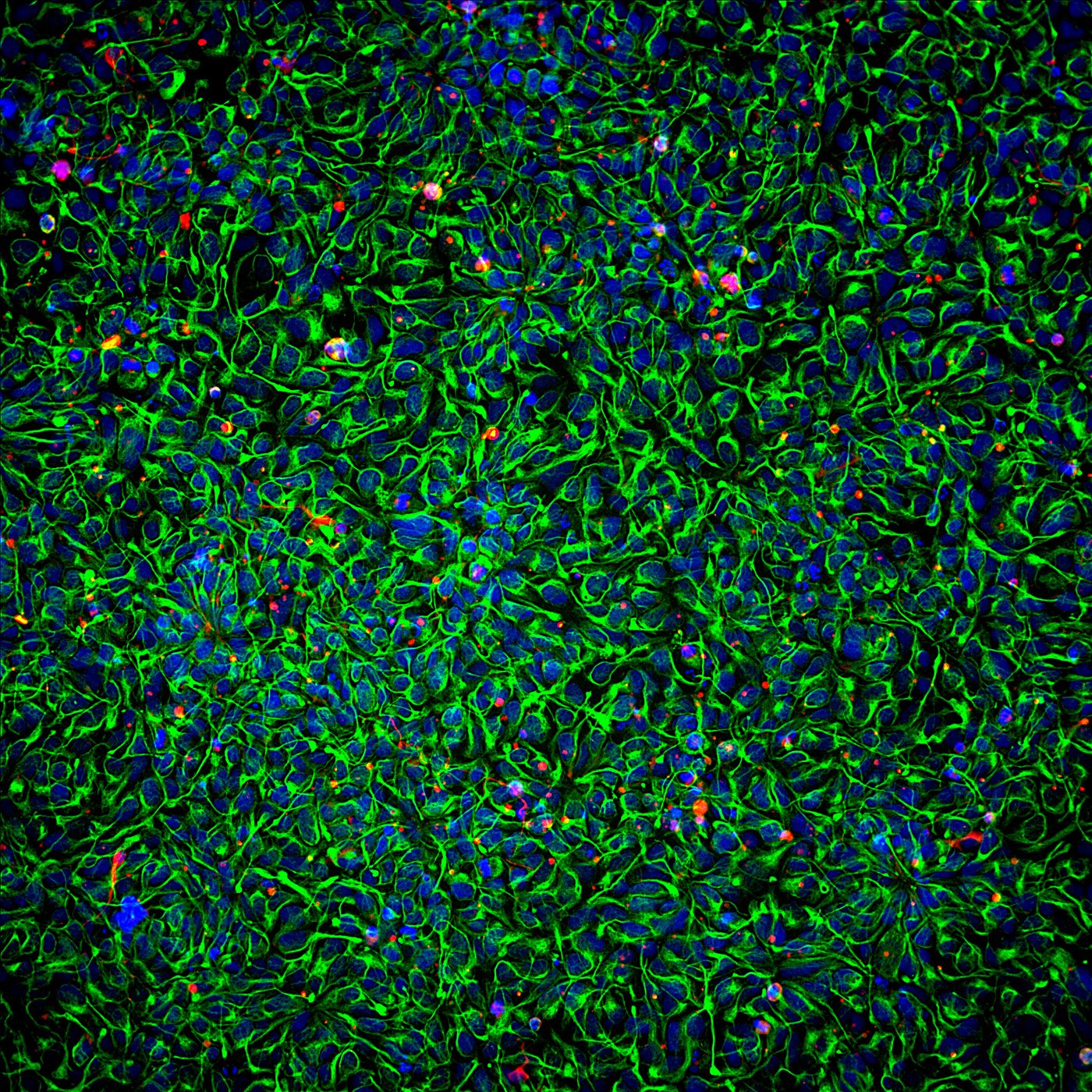
Neural stem cells derived from pluripotent stem cells (blue: cell nucleus; green and red: marker for early neural progenitor cells) [Copyright: Institute of Reconstructive Neurobiology, Bonn]
In the summer of 2019, announcements by a Japanese research team to implant human stem cells in mice and rats triggered a public debate on the purpose of these experiments. Under the heading "Scandalous or visionary? Replacement organs from chimeras and Petri dishes", three Bonn scientists took up this topic on 17 October in the fully booked "RheinBühne" and gave short lectures on current research. Neurobiologist Sandra Blaess from Bonn University Hospital explained the planned experiments and how they could help people with diseased organs. Her colleague Vira Iefremova addressed a different approach within stem cell research: Organ-like structures grown from stem cells, so-called organoids, promise to provide a better understanding of organ diseases and new possibilities for testing drugs. Theologian and ethicist Hartmut Kreß highlighted ethical aspects of chimeric and organoid research, such as the right to health or the handling of laboratory animals.
The second half of the program consisted of an extensive discussion, during which biologist and moderator Elisabeth Jurack took up numerous questions from the audience. All in all, it was an exciting evening and a good opportunity for the public to get first-hand information about current developments in stem cell research outside the university.